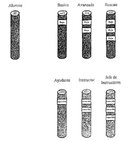IAAL
This is a topic that I've though long and hard about ever since an instructor told me, "As soon as you even look in the general direction of an incident, you're involved." This bothered me everyday for several months before I decided that he was absolutely correct.
The only time I would attempt any type of rescue is if it were my regular buddy, a close friend or a family member. Even if you are only deposed by the plaintiff's counsel, you should obtain representation.
Just another hazard of diving.
Best.
p.s.
BTW, there are plenty of penalties for bring frivolous litigation - especially in Federal practice:
Under the well-known Rule 11 of the Federal Rules of Civil Procedure a litigant (or their attorney) found to make a frivolous claim may be subject to monetary penalties.
The US Code has long provided for the ability of a federal court to require a losing party to pay for a defendent's damages.
Also, the Internal Revenue and Bankruptcy codes explicitly spell out penalties for frivolous litigation.
Do idiots get away with filing multimillion dollar actions against dry cleaners for losing a pair of pants? Sure. If there is no law specifically proscribing such actions. But to say that there are no penalties under U.S. law penalizing frivolous suits is inaccurate.
Finally, being accused of bringing frivolous actions results in a huge black mark against an attorney in the eyes of bar. As such, an attorney interested in a career and not a quick buck will refuse to sign their name to an obviously frivolous action.






